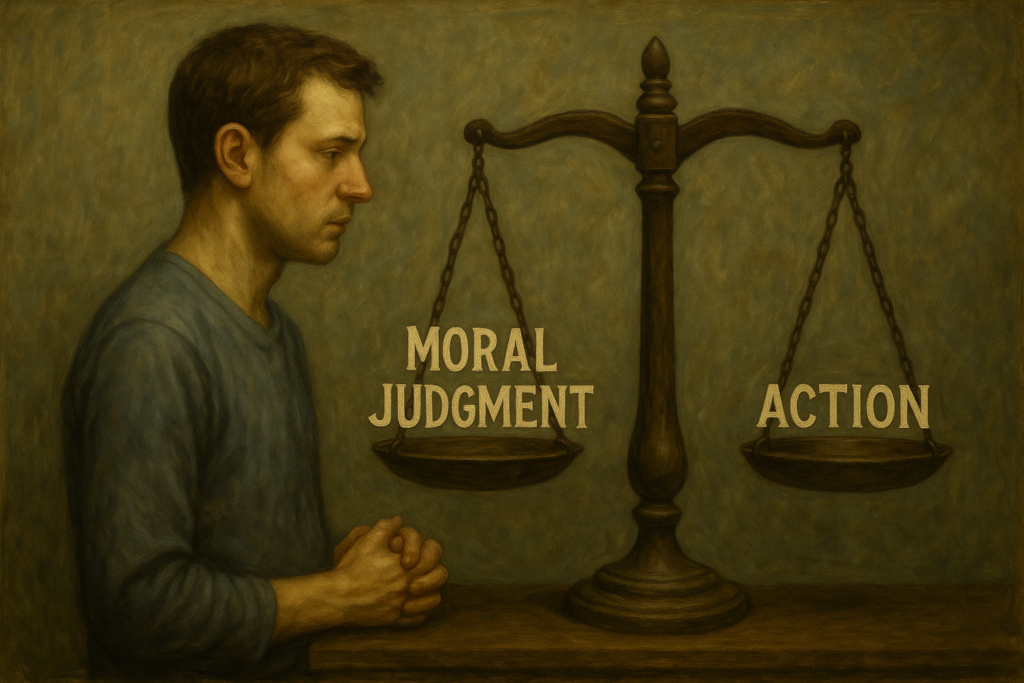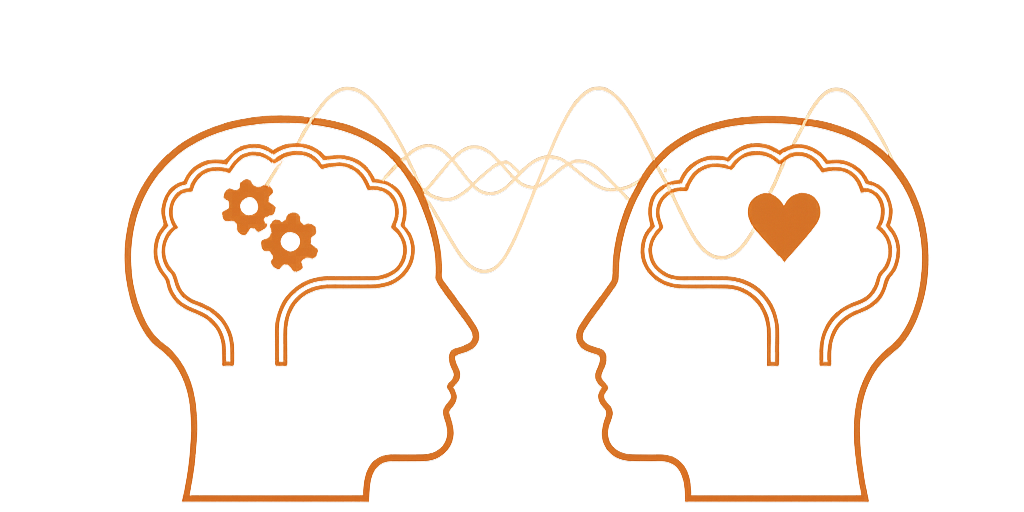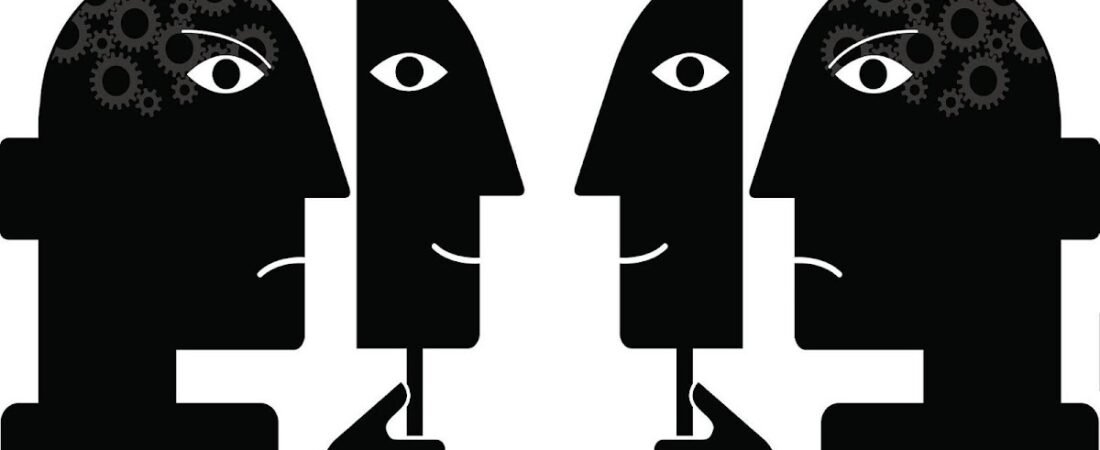Sometimes we don’t fail for lack of morals, but for lack of energy. This study by Dr. L. Sebastián Contreras-Huerta explores how moral hypocrisy can arise not from malice, but from the effort it takes to act according to our own values.
Imagine a politician who publicly condemns those who break COVID-19 restrictions — yet secretly ignores them whenever it suits him, even if it risks others’ health. Here, there’s a clear mismatch between how he judges others and how he behaves himself. This is known as hypocritical blame. Although we often assume that moral judgments and moral actions go hand in hand, people frequently fall short of their own standards. But why does this happen? Most would say this politician is immoral, and his moral stance is just a façade. But is it really that simple?

In a recent Scientific Reports study, Dr. L. Sebastián Contreras-Huerta, faculty member at Universidad Adolfo Ibáñez and Principal Investigator at the ESD Lab, challenges this view. This study suggests that, in some cases, moral hypocrisy arises not from deceit or double standards, but from a lack of motivation to make the physical effort required to act prosocially. This idea echoes philosophical notions of akrasia — the weakness of will that prevents people from acting on their genuine moral beliefs (Bartel, 2019; Batson, 2002). Previous studies have shown that those who experience hypocritical blame display brain signatures of guilt, indicating remorse rather than deceit (Yu et al., 2022). In other words, moral hypocrisy might reflect prosocial apathy — a heightened sensitivity to the effort costs of doing the right thing.
In this study, 62 participants completed three experimental tasks. In the first, they decided whether to gain money by administering electric shocks to another person. Later, they judged how condemnable others’ decisions were in a similar task, revealing the gap between moral action and moral judgment. Finally, they performed a prosocial effort task, squeezing a handgrip to earn rewards for someone else.
Results showed that individuals with greater moral hypocrisy were less willing to exert effort for others — and even when they tried, they applied less force and failed to achieve the goal more often. This suggests that the gap between moral ideals and actions may stem from low motivation to bear the costs of helping. These individuals seem to like the idea of being moral, but struggle with the wanting to act accordingly.
These results suggest that when people manifest hypocritical blame, it does not necessarily mean that they are dishonest or manipulative. Rather, they may feel genuine guilt for not living up to their ideals. Understanding this continuum between moral intention and effort could help us act with greater consistency and compassion. Maybe we’re not so different from that politician after all.

Referencias:
Bartel, C. Hypocrisy as either deception or Akrasia. Philos. Forum. 50, 269–281 (2019).
Batson, C. D., Thompson, E. R. & Chen, H. Moral hypocrisy: addressing some alternatives. J. Pers. Soc. Psychol. 83, 330–339 (2002)
Contreras-Huerta, L. S., Yu, H., Prosser, A. M. B., Lockwood, P. L., Crockett, M. J., & Apps, M. A. J. (2025). Hypocritical blame is associated with reduced prosocial motivation. Scientific Reports, 15(1). https://doi.org/10.1038/s41598-025-17698-4
O’Connor, K., Effron, D. A. & Lucas, B. J. Moral cleansing as hypocrisy: when private acts of charity make you feel better than you deserve. J Pers. Soc. Psychol 119, 540 (2020).

